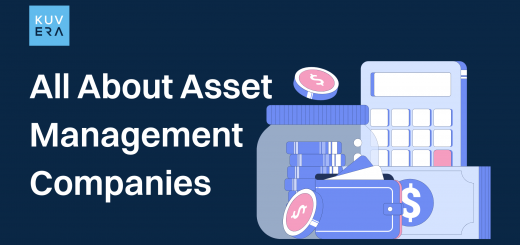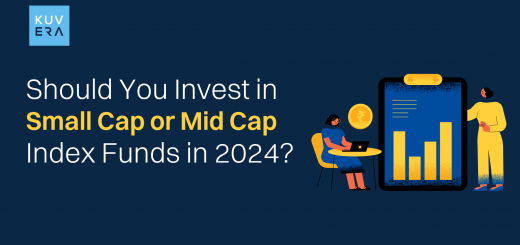Even if you are new to investing, you must have heard about mutual funds. It helps companies raise capital by investing in their shares. By collecting savings from the public in smaller units, companies turn them into productive investments by forming a huge capital investment. In mutual fund investments, diversification involves spreading investments across different asset classes, industries, and geographic regions. This helps mutual fund investors minimise the risk associated with any single asset or market they can diversify risk better than an individual investor might.
If you are new to investing, the most important thing is to pick the right mutual fund for you. You must consider your risk tolerance and future financial goals.
Don’t know how to start saving? First, set a financial goal.
After you have defined your risk capacity and set your financial goals, it’s time to understand the different types of mutual funds that you can start investing in.
What Is A Mutual Fund?
A mutual fund pools money from you to invest in a number of securities. This collective investment structure allows you to participate in a diversified portfolio of stocks, bonds and other assets, all at once.
What Are The Different Types Of Mutual Funds?
There are many types of mutual funds, each catering to specific objectives and risk tolerance. Each type offers a unique investment strategy, allowing you to diversify your portfolio. Here are some of the major types of mutual funds that are offered by fund houses:
1/ Equity Funds
Equity funds invest primarily in stocks and are aimed at wealth generation over the longer term. They are suitable for you, if you are looking for capital growth and can tolerate higher levels of risk.
Here are the top 5 equity funds based on their 3-year returns as of 26 June 2024:
| Equity Funds | AUM* | 1Y Returns | 3Y Returns | TER^ |
| Aditya Birla Sun Life PSU Equity Growth Direct Plan | ₹4711 cr | 97.59% | 41.48% | 0.45% |
| Invesco India PSU Equity Growth Direct Plan | ₹1138 cr | 99.31% | 41.25% | 0.93% |
| Nippon India Power & Infra Bonus Bonus Growth Direct Plan | ₹5697 cr | 85.16% | 40.68% | 1.14% |
| Nippon India Power & Infra Growth Direct Plan | ₹5697 cr | 85.16% | 40.68% | 1.14% |
| ICICI Prudential Infrastructure Growth Direct Plan | ₹5034 cr | 71.17% | 40.36% | 1.13% |
*Assets Under Management
^Total Expense Ratio
2/ Debt Funds
Debt funds invest in bonds and other debt instruments, offering lower risk compared to equity funds. They aim to provide a more stable income to investors and are suitable for those who seek stability and preservation of capital.
Here are the top 5 debt funds based on their 3-year returns as of 26 June 2024:
| Debt Funds | AUM | 1Y Returns | 3Y Returns | TER |
| Bank Of India Credit Risk Growth Direct Plan | ₹128 cr | 6.75% | 39.90% | 1.19% |
| Aditya Birla Sun Life Medium Term Growth Direct Plan | ₹1864 cr | 8.00% | 13.37% | 0.85% |
| Bank Of India Short Term Income Growth Direct Plan | ₹78 cr | 6.68% | 12.51% | 0.50% |
| UTI Credit Risk Growth Direct Plan | ₹389 cr | 7.46% | 11.71% | 0.89% |
| UTI Dynamic Bond Growth Direct Plan | ₹514 cr | 7.94% | 11.18% | 0.69% |
3/ Hybrid Funds
Hybrid funds, also known as balanced funds, invest in a mix of equity and debt. They aim to balance the risk by diversifying investments across both asset classes, making them suitable for investors looking for moderate growth with lower volatility.
Here are the top 5 hybrid funds based on their 3-year returns as of 26 June 2024:
| Hybrid Funds | AUM | 1Y Returns | 3Y Returns | TER |
| JM Aggressive Hybrid Growth Direct Plan | ₹306 cr | 60.01% | 25.82% | 0.60% |
| ICICI Prudential Equity & Debt Fund – Direct Plan – Growth | ₹35122 cr | 41.00% | 24.80% | 1.00% |
| Bank of India Mid & Small Cap Equity & Debt Fund – Direct Plan – Growth | ₹754 cr | 54.00% | 23.90% | 1.20% |
| Quant Absolute Fund – Direct Plan – Growth | ₹2114 cr | 41.30% | 21.50% | 0.80% |
| Edelweiss Aggressive Hybrid Fund – Direct Plan – Growth | ₹1661 cr | 37.30% | 21.40% | 0.40% |
4/ Index Funds
Index funds replicate the performance of a specific index, such as BSE Sensex, NIFTY 50 or the S&P 500, by investing in the stocks of companies that make up that index. They offer transparency and lower costs due to their passive management style.
Here are the top 5 index funds based on their 3-year returns as of 26 June 2024:
| Index Funds | AUM | 1Y Returns | 3Y Returns | TER |
| Aditya Birla Sun Life Nifty Midcap 150 Index Growth Direct Plan | ₹196 cr | 57.72% | 27.50% | 0.44% |
| Motilal Oswal Nifty Midcap 150 Index Growth Direct Plan | ₹1591 cr | 57.45% | 27.46% | 0.30% |
| Nippon India Nifty Midcap 150 Index Growth Direct Plan | ₹1313 cr | 57.11% | 27.22% | 0.30% |
| Motilal Oswal Nifty Smallcap 250 Index Growth Direct Plan | ₹688 cr | 64.40% | 27.07% | 0.36% |
| Nippon India Nifty Smallcap 250 Index Growth Direct Plan | ₹1319 cr | 63.74% | 26.96% | 0.35% |
Start investing in Index Funds.
5/ Fund of Funds (FoFs)
Funds of funds invest in other mutual funds. The idea is to achieve broad diversification by holding a variety of fund types under one umbrella.
In simple terms, FOF is an investment strategy where a fund invests in a portfolio of other investment funds rather than investing directly in stocks, bonds, or other securities. So, they diversify risk.
Here are the top 5 FoFs based on their 3-year returns as of 26 June 2024:
| Funds of Funds | AUM | 1Y Returns | 3Y Returns | TER |
| ICICI Prudential Bharat 22 FoF Growth Direct Plan | ₹1362 cr | 69.42% | 40.09% | 0.19% |
| ICICI Prudential India Equity FoF Growth Direct Plan | ₹113 cr | 50.80% | 24.95% | 1.26% |
| Nippon India Nifty Next 50 Junior Bees FoF Growth Direct Plan | ₹403 cr | 66.56% | 23.28% | 0.26% |
| Kotak Multi Asset Allocator FoF Dynamic Growth Direct Plan | ₹1454 cr | 34.75% | 21.09% | 0.30% |
| Mirae Asset NYSE FANG ETF FoF Growth Direct Plan | ₹1541 cr | 51.24% | 20.59% | 0.71% |
6/Solution-Oriented Funds
Mutual funds that are designed to help you achieve specific financial goals, such as retirement planning or your child’s education are called as solution-oriented mutual funds. They have a defined investment horizon and a predetermined asset allocation strategy to meet your targeted objective. They are often passively managed, which means they aim to match the performance of a benchmark index.
Here are the top 5 solution-oriented funds based on their 3-year returns as of 26 June 2024:
| Goal Oriented Funds | AUM | 1Y Returns | 3Y Returns | TER |
| ICICI Prudential Retirement Pure Equity Growth Direct Plan | ₹796 cr | 59.08% | 31.62% | 0.76% |
| HDFC Retirement Saving Equity Growth Direct Plan | ₹5159 cr | 41.67% | 24.76% | 0.67% |
| ICICI Prudential Retirement Hybrid Aggressive Growth Direct Plan | ₹477 cr | 52.02% | 23.38% | 0.85% |
| SBI Retirement Benefit Aggressive Growth Direct Plan | ₹2414 cr | 36.65% | 22.93% | 0.82% |
| Nippon India Retirement Wealth Creation Scheme Growth Direct Plan | ₹3102 cr | 47.46% | 22.28% | 0.96% |
Note: Only growth mutual funds are taken into consideration.
How Does SEBI Regulate Mutual Funds?
The Securities and Exchange Board of India (SEBI) regulates mutual funds to ensure transparency and protect the interests of investors. SEBI sets guidelines that fund managers must follow, ensuring a stable and trustworthy investment environment.
What Is a SIP Investment?
You can contribute small, regular amounts towards a mutual fund, rather than a lump sum in a Systematic Investment Plan (SIP). It is a method of investing a fixed sum, regularly, in a mutual fund scheme. Instead of investing a large amount in one go, you invest smaller amounts at regular intervals (say monthly). Investing in an SIP helps you reduce the risk in the investment world also known as “timing the market.”
Start your first SIP in minutes.
Each investment buys more units when the prices are low and fewer when the prices are high, averaging out the investment cost over time. This concept is also known as “rupee cost averaging”. Over a long period, this can potentially lead to a significant amount of wealth. With the power of compounding, your investment returns start earning their own returns.
How Do Index Funds Work?
An index fund aims to replicate the performance of a specific stock market index, such as the Sensex, NIFTY 50, S&P 500 or some other market index. These funds buy the stocks that are part of an index in the same proportions in which they appear in that index.
Them working for you, while you Netflix and chill.#Memes pic.twitter.com/Sm0ZVWbQHV
— Kuvera (@Kuvera_In) June 27, 2024
The objective is not to beat the market or choose the “best” stocks, but to mirror the overall performance of the index. This method offers several benefits: it’s straightforward, usually has lower fees due to its passive management style, and reduces the risk of individual stock selections.
The key benefits of index funds are:
1/ Lower Expense Ratios And Fees – An index fund typically has much lower expense ratios compared to an actively managed mutual fund. Actively managed funds usually have higher expense ratios because investors are paying for the potential to have a higher return, whereas index funds aim to match the market’s performance.
3/ Diversification – Index funds are more diversified because they track a broad market index. Like the NIFTY 500, which contains 500 different stocks on the National Stock Exchange (NSE) across various sectors.
4/ Consistent Long-Term Performance – Index funds have been outperforming actively managed funds over the long run (as per the SPIVA Report). They simply aim to match the performance of a broad market index, rather than trying to outperform it through active stock selection.
Interested in how we think about the markets?
Read more: Zen And The Art Of Investing
Watch here: All About Sectoral & Thematic Funds
Start investing through a platform that brings goal planning and investing to your fingertips. Visit kuvera.in to discover Direct Plans and Fixed Deposits and start investing today.
AREVUK Advisory Services Pvt Ltd | SEBI Registration No. INA200005166
DISCLAIMER: Mutual Fund investments are subject to market risks. Read all scheme related documents carefully. Registration granted by SEBI, membership of BASL (in case of IAs) and certification from NISM in no way guarantee performance of the intermediary or provide any assurance of returns to investors. Investments in securities market are subject to market risks. Read all the related documents carefully before investing. The securities quoted are for illustration only and are not recommendatory.












